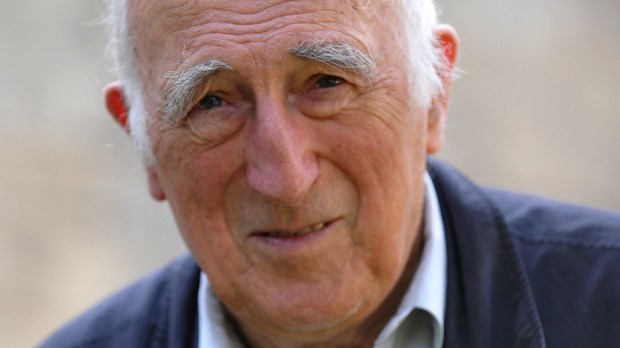“Sorrow” and “consternation” … this the reaction from bishops and faithful of various countries after the announcement this weekend from L’Arche that its founder, Jean Vanier, was found guilty of “manipulative sexual relationships and emotional abuse between 1970 and 2005, usually within a relational context where he exercised significant power and a psychological hold over the alleged victims.”
Vanier, it was found, engaged in some of the same sexual practices as his spiritual father, a priest that the Church deemed heretical already in 1956, and he played a part in enabling that priest to commit his crimes.
In a statement released February 22, 2020, the executive director of L’Arche USA, Tina Bovermann, spoke of the “mix of pain and resolve” from the results of the independent inquiry that L’Arche International launched in the summer of 2019.
Vanier passed away May 7, 2019, at the age of 90. He created L’Arche, a community for those with physical and intellectual disabilities, in 1964. Today, there are more than 150 L’Arche communities throughout the world, where people with and without intellectual disabilities live in community, some as volunteers or paid assistants.
Stephan Posner, director of the international federation of L’Arche, in an
(in French, with English subtitles), reported that he personally gave the results of the investigation to Pope Francis, as well as the Archbishop of Canterbury, the leader of the Anglican Communion.The statement from L’Arche notes that the “inquiry made no suggestion that Jean Vanier had inappropriate relationships with people with intellectual disabilities.”
But the inquiry found that six women, who were unknown to each other, over a period from 1970 to 2005, had similar sexual experiences with Vanier.
The women each report that Jean Vanier initiated sexual relations with them, usually in the context of spiritual accompaniment. Although they had no prior knowledge of each other’s experiences, these women reported similar facts associated with highly unusual spiritual or mystical explanations used to justify these behaviors. The relationships were found to be manipulative and emotionally abusive, and had a significant negative impact on their personal lives and subsequent relationships. These actions are indicative of a deep psychological and spiritual hold Jean Vanier had on these women and confirm his own adoption of some of Father Thomas Philippe’s deviant theories and practices.
Thomas Marie Philippe, a French Dominican who died in 1993, is considered a cofounder of L’Arche along with Vanier. In 1956, after a canonical investigation, Philippe was prohibited from any priestly ministry. This prohibition, however, was ignored.
In 2015, another canonical investigation found Philippe guilty of sexual abuse in spiritual direction with adult women (women without intellectual disabilities).
The independent inquiry initiated by L’Arche has been accompanied by a historical investigation commissioned by L’Arche into the archives of the French Dominicans, which were made available to them for the first time, as well as the private correspondence of Vanier, which became available at the time of his death.
The historical research suggests that in the 1950s, Jean Vanier was a member of a small clandestine group which subscribed to and participated in some of Father Thomas Philippe’s deviant sexual practices, which were founded on so-called “mystical” or “spiritual” beliefs that had been condemned by the Catholic Church. This group was made up of Father Thomas Philippe, Jean Vanier and a few women.
A communique from the French bishops notes the “astonishment and sorrow” at these revelations, while assuring gratitude and support for the victims. Meanwhile, the president of the Assembly of Catholic Bishops of Quebec (Vanier was a native Canadian), expressed his consternation, while praising the “courage of the victims who have denounced these acts.”
Posner noted in the interview that L’Arche is working to evaluate its safeguarding and whistleblowing protocols, and has strengthened them by establishing a central commission, beyond national or regional commissions, where anyone could report any sort of concerning activity.
The statement from L’Arche affirms: “L’Arche is committed to making sure that its 154 communities across the world are places of safety and growth for all its members, with and without disabilities.”

